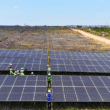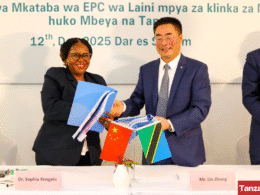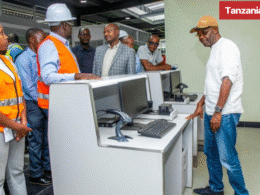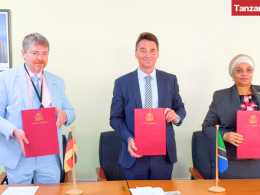The Tanzania Portland Cement Company Ltd (TPCC) has recently undertook a series of training programmes for more than 1,000 block makers throughout the Lake Zone, Tanzania’s Northern Region to improve efficiency at work.
Tanzania-tpcc-cement-blocksThe programme is aiming at improving the quality of blocks produced and enhancing efficiency in the production process to meet the growing market demand in the country, in line with growth in construction sector at rates of 9.8% and 10.2% in 2013 and 2014 according to the African Economic Outlook Organization (AEO).
It started in July 2015, with a pilot training seminar for 250 cement distributors and block makers from Dar es Salaam, Tanzania’s commercial capital where the company currently operates its integrated cement plant.
After the pilot success, TPCC started on September 2nd, 2015 with the first training seminar for more than 200 block makers in Mwanza, Lake Zone region of the country where not only quality topics were discussed, but also on the health and safety at work field.
According to TPCC’s Commercial Director, Mr. Simon Delens, TPCC is planning to broad the training seminars for block makers throughout the country to raise the quality of the products available in the local market.
TPCC’s Application Engineer Emmanuel Owoya, added that the programme seeks to create awareness in block makers in order to understand the importance of business quality which yields to quality materials and consumer’s satisfaction.
TPCC expects to enhance quality on its supply chain to meet the current growing demand and raise profits since a 15% increase in sales volumes made the company to boost its income in 47.3% from USD 20.2 million in 2013, to USD 29.8 million in 2014 due to higher efficiency in costs and operations.
According to Reuters, Tanzania is expecting to double its cement production in the next few years from a current outcome of 3 million tones in 2014.











